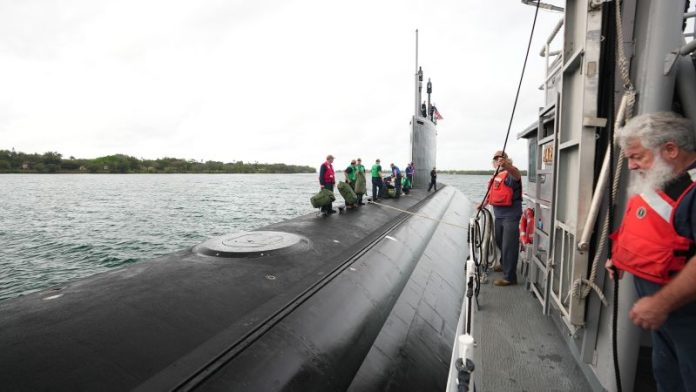There’s growing concern from Pacific leaders over a nuclear submarine agreement between Australia, the UK and U.S to counter China’s growing presence in the region.
Several island nations feel like there’s a lack of consultation on geopolitical deals in their own region.
Professor Steven Ratuva from Canterbury University says AUKUS Is being seen as an “Anglo Fear Alliance” and the Pacific has been left out of it.
“There has been a fear it’s going to escalate the geopolitical tension in the Pacific and its not something they need at this time when they need to focus on climate security,” he says.
Former Pacific Islands Forum secretary general Dame Meg Taylor has added her voice to the dissent saying there has been a “serious lack of consultation” within the region which is caught between the superpowers.
One of the big issues is that Australia was signatory in 1985 to the Treaty of Rarotonga, the South Pacific Nuclear Free Zone Treaty.
Ratuva says its been doing it’s best to ensure it’s not seen as undermining the treaty when in fact the spirit of the treaty has been.
“What Australia is trying to do recently is get buy in from Pacific leaders using its leverage, its power, its aid, its diplomacy as a way of clearing the ground for its submarines to operate freely in the Pacific,” he says.
Ratuva says the U.S has a bigger geopolitical strategic interest in global domination while Australia has a monkey see, monkey do kind of foreign policy and “whatever America does, it does – it sees itself as a deputy sheriff of some kind”.
Now New Zealand is considering joining as a non-nuclear partner of AUKUS, which will include sharing advanced military technologies such as artificial intelligence, and it’s ringing alarm bells.
Ratuva believes New Zealand needs to be extremely careful as being aligned with AUKUS when it has a historical reputation for independent foreign policy will affect its relationship with island countries many of whom have close ties with China.
SOURCE: TVNZ/PACNEWS













